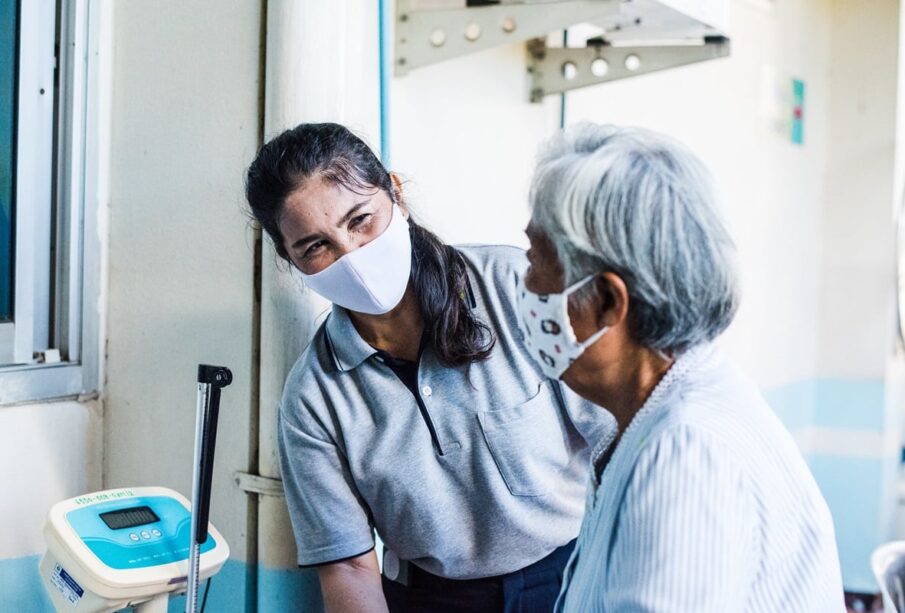Why Is Medical Insurance Essential for Low and Middle-Income Families?

Health insurance was considered a luxury in the past, but now it is a necessity. The high cost of healthcare, due to increasing medical expenses, can make it difficult to pay for medical treatments out of one’s savings. In such situations, a health insurance policy, also known as medical insurance, can protect one’s finances and ensure access to quality and standardised medical treatment.
The rising cost of treatment is particularly challenging for low and middle-income groups, and medical insurance is a way to protect oneself during emergency medical situations financially. However, according to a report by NITI Aayog titled ‘Health Insurance for India’s Missing Middle,’ statistics suggest that nearly 30% of India’s population is without health insurance coverage. This low insurance penetration is particularly concerning for low and middle-income groups. They need the benefits most from family health insurance plans.
Why is Health Insurance Important for a Family?
- Assistance in combating the rising costs of healthcare
The data on medical inflation shows that the average rate of increase in medical costs in India is between 12% and 14% annually. With this level of inflation, it becomes increasingly difficult to save enough money to cover the rising costs of medical treatment. Health insurance plans can help by requiring policyholders to pay a premium for coverage. This is especially beneficial for low and middle-income groups, who may need more means to save a large sum of money for unexpected medical expenses. Paying a steady monthly or annual premium is a more manageable and systematic approach to protecting one’s health in the long term.
- Safety net with a high-quality healthcare facility
Having access to high-quality healthcare facilities is crucial for proper medical care. However, low- and middle-income groups may need more financial resources to access standardised high-quality healthcare facilities. A best health insurance plan can act as a safety net, allowing these groups to seek the best treatment without worrying about the cost or compromising quality.
- Medical insurance coverage: pre – & post – hospitalisation
Health insurance plans for families or individuals typically cover hospitalisation costs, a major component of medical treatment, unless otherwise specified in the policy. Additionally, many insurance policies cover pre-hospitalization and post-hospitalization expenses such as diagnostic tests, investigative procedures, medication, and more, providing comprehensive coverage for all aspects of treatment.
- Cashless services
Another advantage of health insurance policies, especially for low-income groups, is the availability of cashless services. This feature allows policyholders to receive treatment without paying the full cost upfront. For example, using a network hospital, only the deductibles need to be paid, and the insurance company will cover the remaining balance, subject to the policy’s terms and conditions.
- Medical insurance for the family with single coverage
One benefit of health insurance for low and middle-income groups is the availability of family floater policies. These medical insurance plans provide a single coverage for all family members rather than requiring individual policies for each member. This approach is more cost-effective, as the premium for a family floater policy is typically lower than the total cost of multiple respective policies and provides a more considerable sum.
Summing Up
Medical insurance is essential for low and middle-income families in today’s society. The high cost of healthcare and the rising medical expenses make it difficult to pay for medical treatments out of one’s savings. Therefore, a health insurance policy can act as a safety net, protecting one’s finances and ensuring access to quality and standardised medical treatment. Furthermore, the rising cost of treatment is particularly challenging for low and middle-income groups, and medical insurance is a way to protect oneself during emergency medical situations financially.
FAQ
Why do poor people need insurance?
Poor people need insurance to protect themselves from the financial burden of unexpected medical expenses. Without insurance, an unexpected illness or injury can result in significant financial hardship, as many low-income individuals and families may not have the means to pay for medical treatment out of pocket. Health insurance can help mitigate this risk by covering a portion or all of the cost of medical treatment so that individuals and families are not forced to choose between paying for medical care and other basic needs like food and housing.
What health benefits are available to a person below the poverty line?
In India, people below the poverty line may be eligible for government-funded health benefits through programs such as the National Health Mission and the Ayushman Bharat scheme. These programs provide free or low-cost healthcare services, including primary and secondary care and financial assistance for medical treatments and surgeries. Some states in India also have health insurance schemes for low-income individuals and families.




















